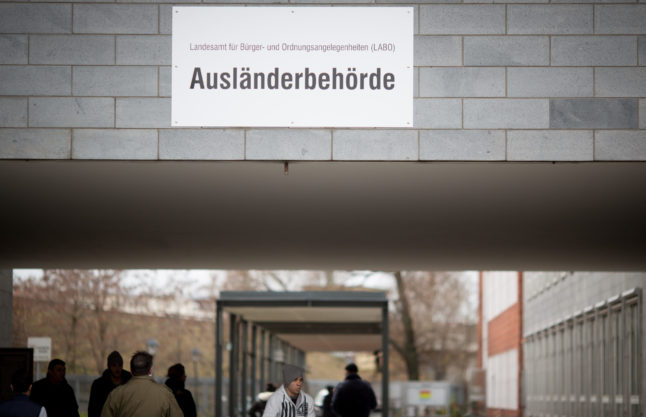On Friday, Germany’s Federal Council – the Bundesrat – approved the new Skilled Immigration Act, which aims to simplify the immigration process for non-EU workers hoping to come to Germany.
The new law will reduce a range of bureaucratic hurdles, including allowing workers to immigrate even if their professional qualifications don’t qualify them for the job they are starting, and allowing those with unrecognised professional degrees to come if they can demonstrate work experience and have a job offer in Germany. There will also be a new points-based visa for job seekers.
The federal government hopes to attract around 130,000 additional workers annually through this reform which, according to a spokesperson from the German Interior Ministry, is likely to apply from March 2024 onwards.
But a recent study by the Organisation for Economic Cooperation and Development (OECD) on behalf of the Federal Ministry of Labour has revealed that it is not just the legal framework that is putting foreign workers off moving to Germany.
Instead, around half of the participants in the OECD survey identified the German language as a major obstacle, as well as long waiting times for visas and complicated immigration procedures. Almost a third reported difficulties in understanding German entry regulations, and many said that they did not know where to find job advertisements.
Only around half of the respondents reported having a positive impression of the German immigration system.
READ ALSO: Why do some foreign workers in Germany ultimately choose to leave?
Four percent success rate
For the study, which was released last week, the OECD researchers surveyed around 30,000 foreign workers between summer 2022 and spring 2023 who had expressed interest in working in Germany through the official government portal for skilled professionals abroad, “Make it in Germany”.
At the beginning of the study, more than half of the respondents reported having firm intentions of moving to Germany, and eight out of ten had already begun preparations, such as learning German or searching for employment.
However, six months later, only 4 percent of those surveyed had arrived in Germany. The vast majority still live abroad, with most respondents living in India, Turkey, Colombia, and the Philippines. Nearly three-quarters of them have a university degree, and almost half work in an occupation currently affected by a labour shortage in Germany.
Among those who actually made it to Germany during the study period, their enthusiasm for Germany diminished after arriving here. Only about a third of respondents perceived Germany as a country that welcomes immigrants “unconditionally” while 45 percent reported feeling “partially” welcome.
READ ALSO: IN DEPTH: Are Germany’s immigration offices making international residents feel unwelcome?
The study also revealed that processing times for applications at German embassies abroad was a major sticking point for those wanting to move to Germany. Around 40 percent of respondents reported “long waiting times” at German embassies and for ten percent of those who did get a visa, the process took longer than six months. More than a quarter of the respondents said that they would abandon their plans to move to Germany if they had to wait a further six months.
To what extent the new skilled immigration law will actually simplify and accelerate immigration in practice remains to be seen. One of the Study’s lead researchers, Thomas Liebig, pointed out that, even the best law is useless if its implementation falters.

Alongside the law, the federal government has also set out plans to digitise and expedite administrative procedures, to help speed up the immigration process. However, there has been little progress in this regard so far and in many regions of the country, immigration offices are creaking under huge backlogs and, ironically enough, staff shortages.
At the central foreigners’ office in Berlin – the Landesamt für Einwanderung – there are numerous reports of foreign professionals waiting at least five to six months for an appointment. According to regional news outlet rbb24, the office currently has 10,000 unanswered emails.
According to a report from the Frankfurter Allgemeine Zeitung in February this year, the foreigners’ office in Munich had 25,000 unanswered e-mails and in Stuttgart, there were 15,000 unanswered mails.
READ ALSO: Could backlogs at Germany’s foreigners’ offices stifle skilled immigration?
As a result, the immigration process for skilled professionals can take anywhere from one to three years, according to Steffen Sottung, Managing Director of International Affairs at the Federal Employment Agency.






 Please whitelist us to continue reading.
Please whitelist us to continue reading.
Member comments